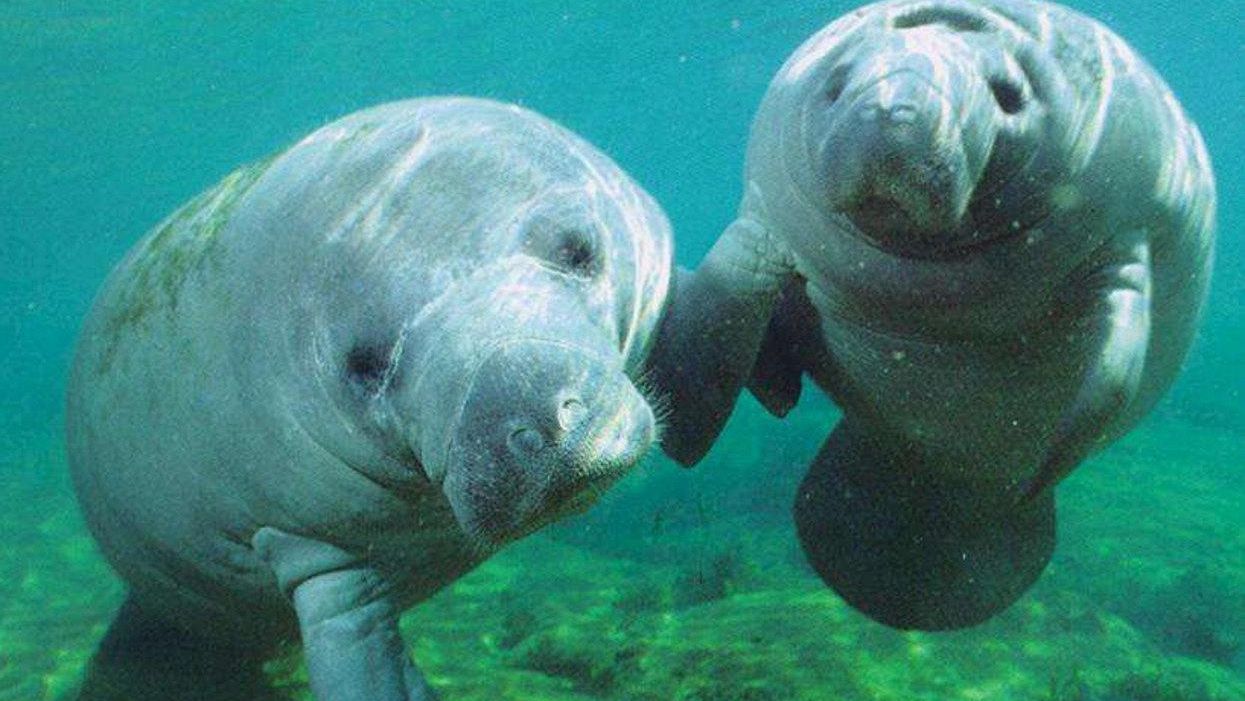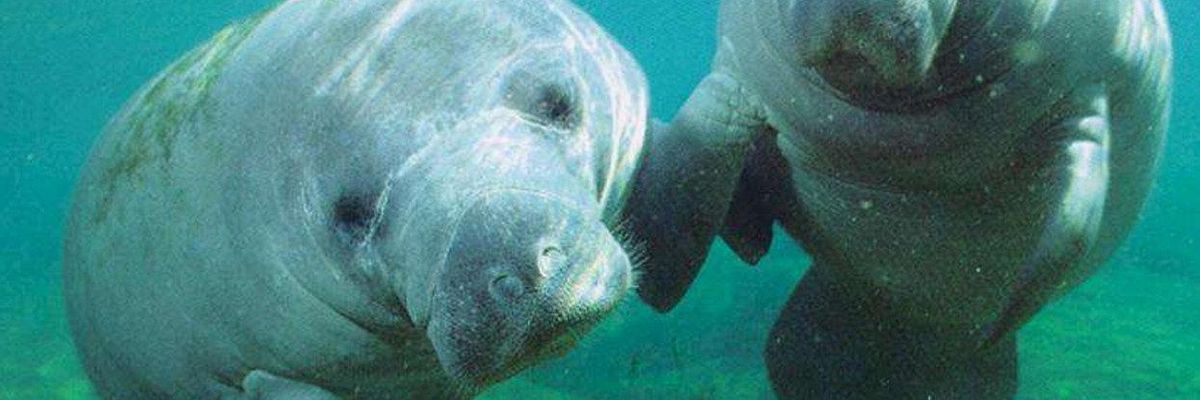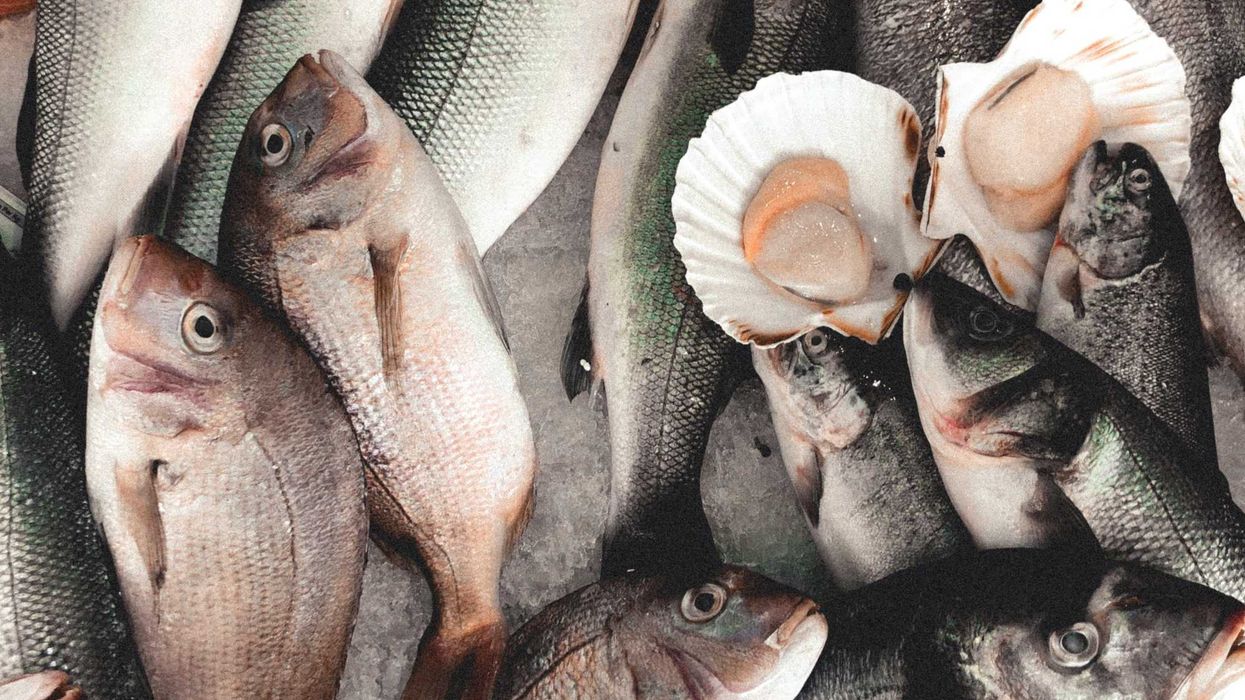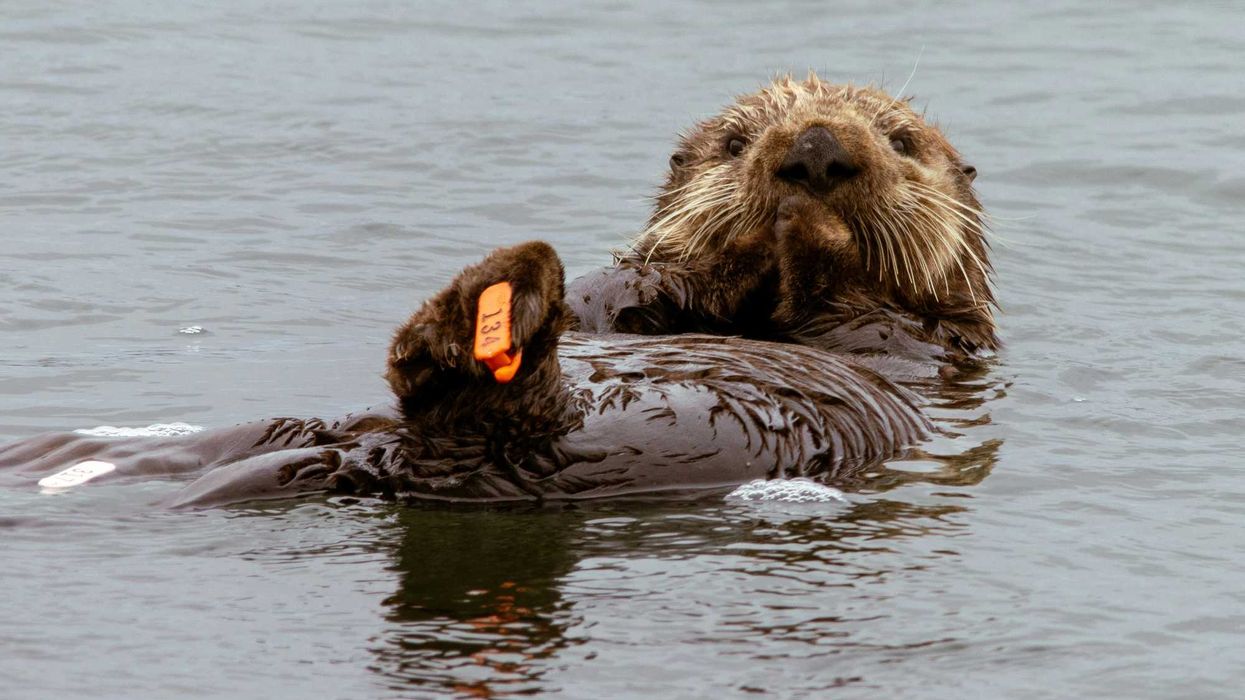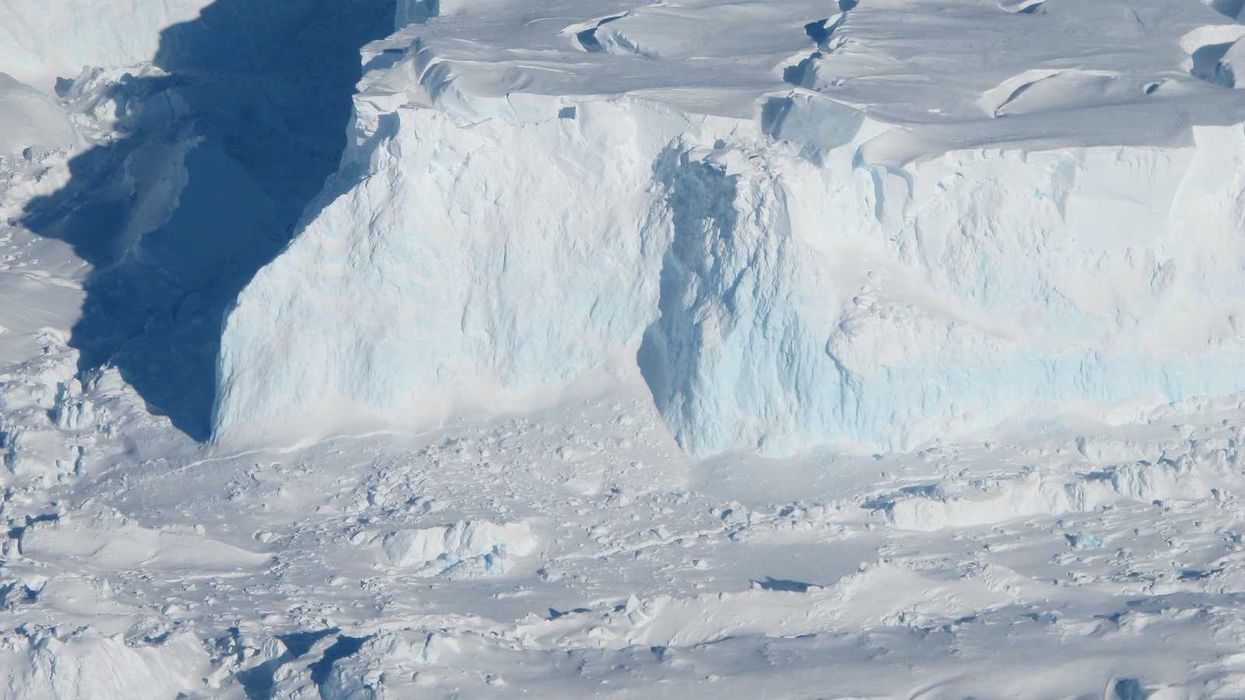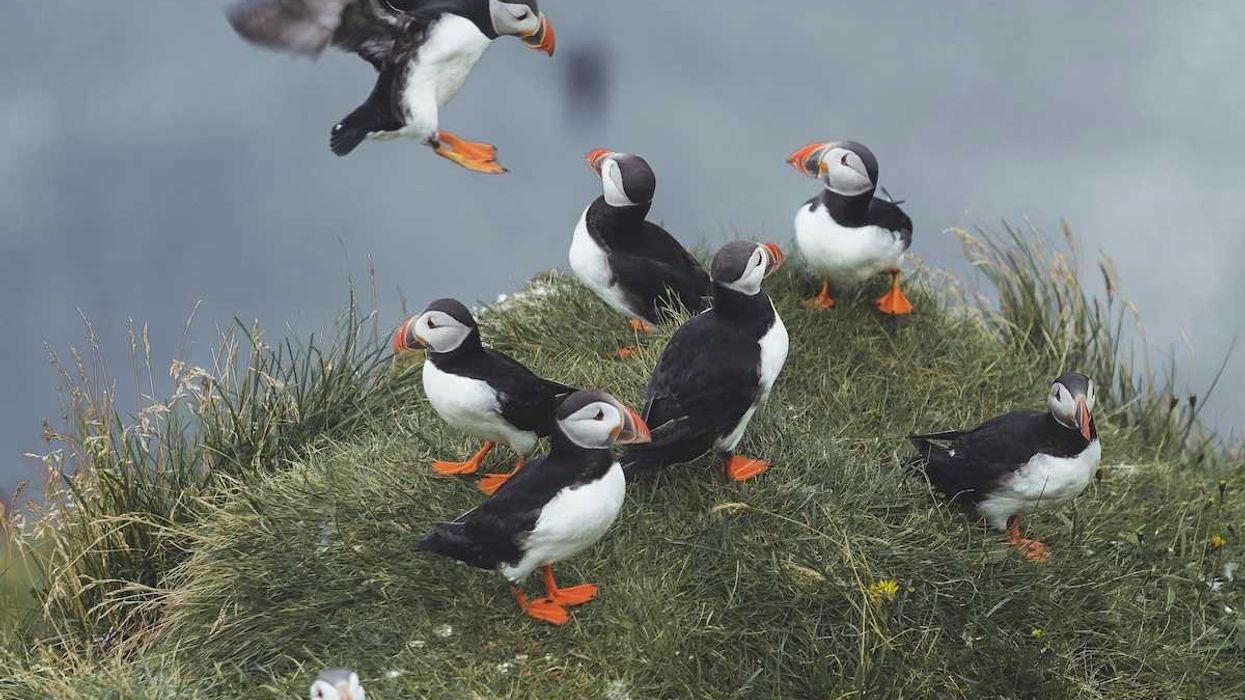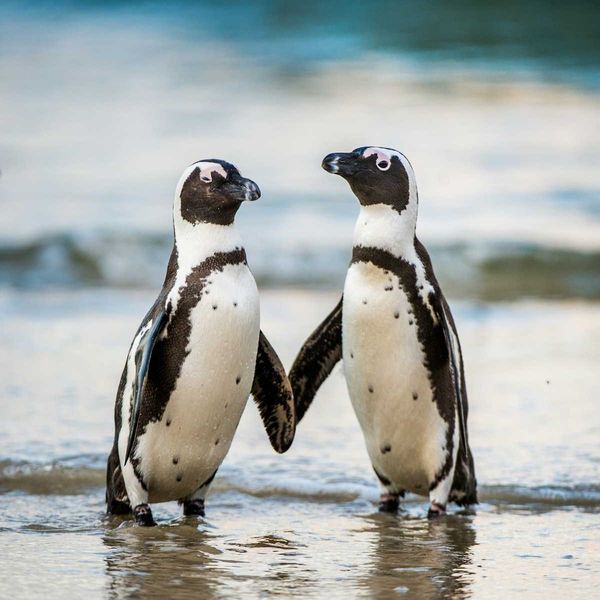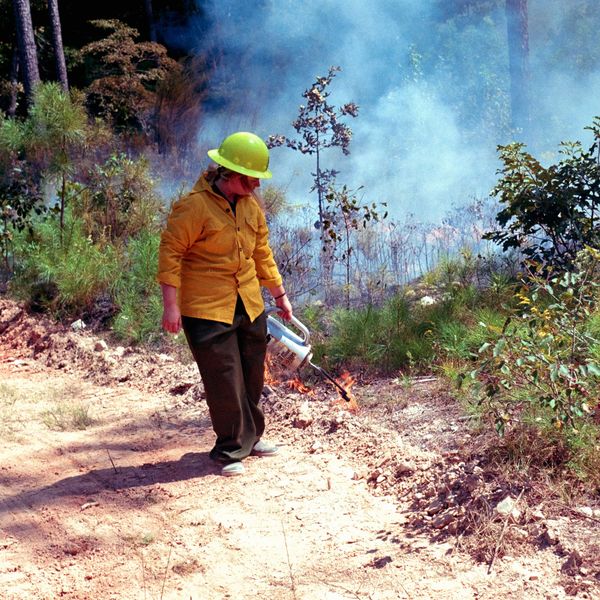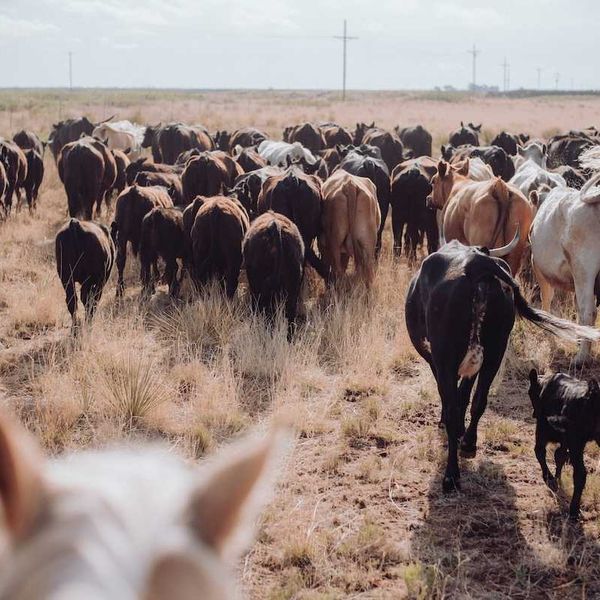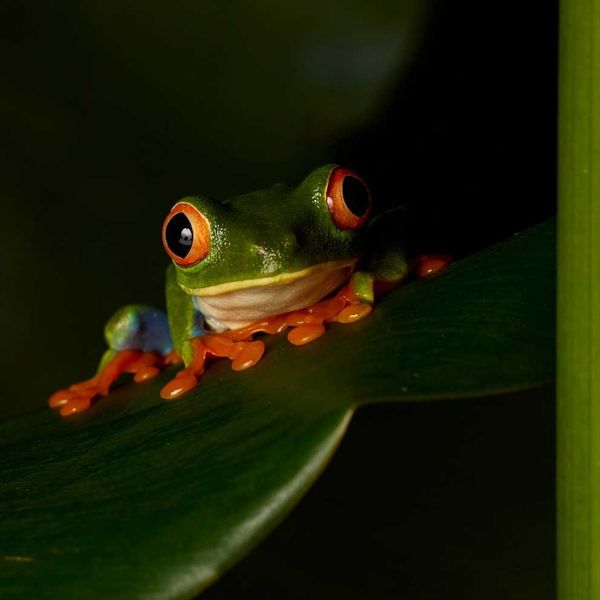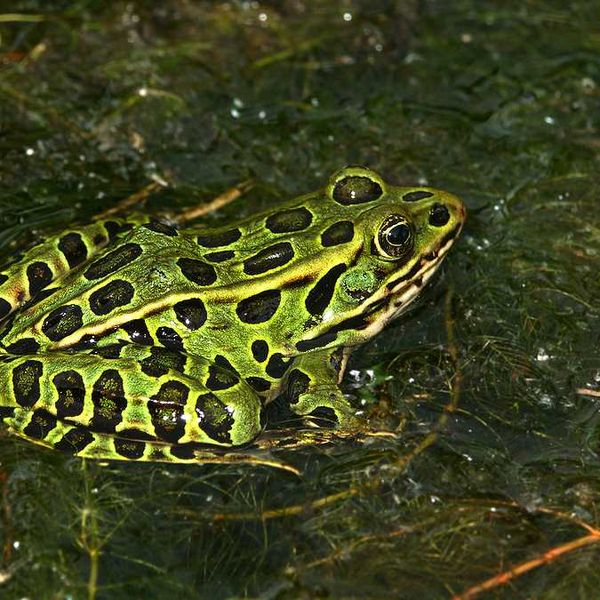The new year wasn't yet a week old when we learned that the beginning of 2021 is going to feel a lot like the 52 weeks of misery that was 2020.
Thousands of Rebels Without a Clue stormed the U.S. Capitol on January 6, resulting in five deaths. This week I just didn't want to write about coronavirus, or Trump, or impeachment. We've all heard plenty about all of them.
I spoke with our senior editor Brian Bienkowski, and he had one word: Manatees.
Manatees are freakin' adorable. West Indian manatees (Trichechus manatus latirostris, the put-upon Florida subspecies) have even put their mark on Washington's unique madness: Last week, a manatee was discovered with the word "T-R-U-M-P" etched in the algae on its dorsal side.
There's no evidence that this jowly, logy, Wilford Brimley-esque marine mammal was harmed. However, the Marine Mammal Protection Act of 1972 says you need a special permit to even touch the critter. The Act aside—why the hell would you mess with a manatee? Marvel at them. Then leave them alone.
But enough about manatees. Let's touch on some of my other favorites.
Whale threats

Potential calving female North Atlantic Right Whales
The North Atlantic humpback whale (Megaptera novaeangliae), with its sweeping white pectoral fins and soaring leaps out of the water thrills whale watchers with encounters close enough that the horrible stank emanating from their blowholes almost goes unnoticed. Lately, with abundant food and cleaner water, there's been an uptick in humpback sightings in New York City. I'm hopeful this bolstered visibility will translate to more awareness about the threats that climate change poses, as outlined in a study last month that found decreased reproductive success for the whales linked to climate and overall ecosystem change.
I've never seen the North Atlantic right whale (Eubalaena glacialis). Scientists estimate there are roughly100 breeding females, which make the species critically endangered. At the end of last year, however, the feds proposed a new rule aimed at reducing the number of North Atlantic right whales killed in fishing gear off New England. The rule was widely skewered by environmental organizations.
"For these beloved animals to survive, we need to get all vertical fishing lines out of important right whale habitat immediately. We must transition to on-demand ropeless fishing gear," said Kristen Monsell, oceans legal director with the Center for Biological Diversity, in a statement. The Center pointed out that the endangered population is down to 360, suffering an average of 24 deaths and serious injuries per year.
While I do love the ocean, let's be honest—it's still hard to beat Canis familiaris (dogs!) and its hundreds of breeds. I've always been something of a traditionalist about dogs, so when crossbred Labradoodles, Golden Doodles, Rottweildoodles, and Chihuahuadoodles became au courant several years ago, I labeled them all as Laboratory Retrievers.
But I trust the judgement of my friend of nearly 30 years, Sharon Collins, who writes/produces/anchors a remarkable show called Georgia Outdoors, and my lifelong friend Paul Godowski and his wife Melanie and daughter Jaeda, crossbreed owners all.
The moral of this story is that all species, all breeds are cool. I'm looking at you, Physarum polycephalum.Peter Dykstra is our weekend editor and columnist and can be reached at pdykstra@ehn.org or @pdykstra.
His views do not necessarily represent those of EHN, The Daily Climate, or publisher, Environmental Health Sciences.
Banner photo: Manatees. (Credit: nrca/flickr)

